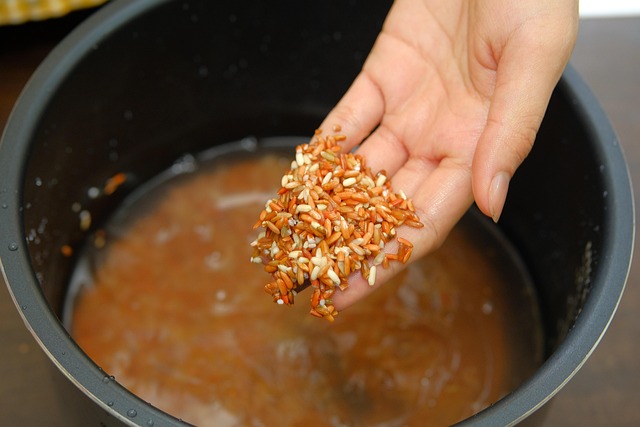-

Since Kimchi is a fermented food, is it healthier for diabetics to eat more of it?
**1. The Two Faces of Kimchi: Probiotics and Sodium** Kimchi is a world-renowned fermented food rich in probiotics, offering several health benefits such as improving gut health and boosting immunity. Some research suggests that substances produced during fermentation may have a positive effect on blood sugar control. However, when people with diabetes consume kimchi, they…
-

Almonds are a good snack for people with diabetes, so is it okay to eat as much as you want?
**1. Almonds: A Prime Example of ‘Healthy Fats’** Almonds are an excellent snack for people with diabetes because they are low in carbohydrates and rich in unsaturated fatty acids, dietary fiber, and magnesium. In particular, the plant-based protein and fiber provide a feeling of fullness, helping to control appetite and prevent sharp spikes in post-meal…
-

Are glass noodles, made from potato or sweet potato starch, better than flour noodles because they raise blood sugar more slowly?
**1. The Misconception: ‘If it’s not flour, it’s fine’** Many people think that because glass noodles are not made from wheat flour, they are better for blood sugar management than regular noodles. However, the main ingredient of glass noodles is ‘refined starch’ extracted from sweet potatoes or potatoes, which can be even worse for blood…
-

Since Coke Zero has no sugar and doesn’t raise blood sugar, is it okay to drink it like water?
**1. Zero-Calorie Drinks and Blood Sugar** ‘Zero’ beverages like Coke Zero and diet soda use artificial sweeteners such as aspartame and sucralose to create sweetness instead of sugar. Since these artificial sweeteners are not digested and absorbed by the body, they do not directly raise blood sugar immediately after consumption. This is why many people…
-

Is 100% whole wheat bread a much better choice for people with diabetes than white bread?
**1. Why Whole Wheat Bread is Better: Rich in Dietary Fiber** Whole wheat bread is made from unrefined whole wheat flour, making it much higher in dietary fiber, vitamins, and minerals than white bread, which is made from refined flour. Among these, ‘dietary fiber’ plays a key role in blood sugar management. Fiber slows down…
-

Can the Omega-3s abundant in perilla oil be beneficial for the cardiovascular health of people with diabetes?
**1. The Link Between Diabetes and Cardiovascular Health** Diabetes is a disease where its complications are more feared than the condition itself. In particular, prolonged high blood sugar damages blood vessels, significantly increasing the risk of cardiovascular diseases like heart disease and stroke. Therefore, protecting vascular health is as important as managing blood sugar, and…
-

If people with diabetes eat brown rice instead of white rice, can they eat as much as they want without worrying about blood sugar?
**1. Brown Rice: Portion Size Still Matters** Many people with diabetes believe that switching from white to brown rice frees them from blood sugar concerns, but this is a dangerous misconception. While it’s true that brown rice is richer in fiber, vitamins, and minerals and has a lower glycemic index (GI) than white rice, it’s…
-

Can people with diabetes eat unlimited amounts of tofu to supplement their protein intake?
**1. Tofu: The All-Rounder of a Diabetic Diet** Tofu is an excellent food for people with diabetes as it has a low glycemic index (GI) and is rich in high-quality plant-based protein. Protein helps you feel full longer, preventing overeating, and is essential for maintaining muscle mass. However, no matter how good a food is,…
-

Are tomatoes a representative ‘superfood’ that is good for people with diabetes?
**1. Why Are Tomatoes a Superfood for People with Diabetes?** Tomatoes are so beneficial that the American Diabetes Association (ADA) has selected them as one of the top 10 superfoods recommended for people with diabetes. This is because they are low in sugar while being packed with key nutrients that are good for health. **2.…
-

Can seaweeds like miyeok (sea mustard) and kelp help with post-meal blood sugar control for people with diabetes?
**1. Rediscovering Seaweed, the Vegetable of the Sea** Seaweeds like miyeok, kelp, and hijiki offer great benefits when included in a diabetic diet. In particular, the abundant ‘soluble dietary fiber’ in seaweed can act as a natural blood sugar regulator by preventing sharp spikes in post-meal blood sugar. **2. The Principle of Blood Sugar Control**…
DangTalk download | PESS Mining | PiSTORE | Naver Cafe
